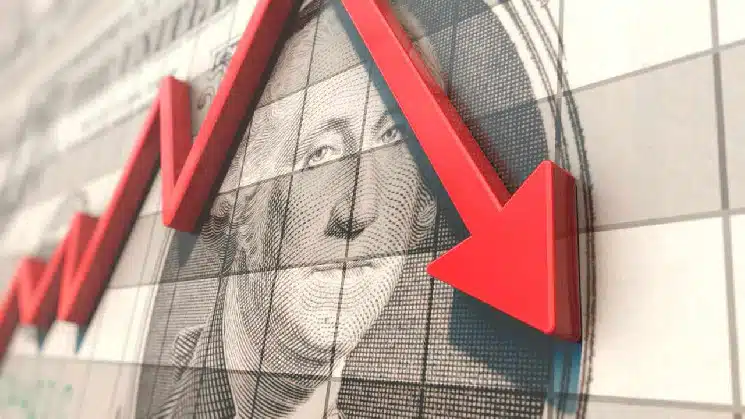Economist Peter Schiff has urged people to “get rid of your US dollars now,” warning that the USD’s reserve currency status is in jeopardy. His explanation for this precarious outlook on the greenback traces to the current financial situation in the US, including mounting debts and a ballooning budget deficit, which some economists believe can make the dollar even more vulnerable to shocks.
Schiff, who is a financial commentator and the CEO of Euro Pacific Capital, has long been critical of the Federal Reserve’s monetary policies and the direction of the US economy. His skepticism of the USD’s future strength is driven predominantly by the increasing amounts of money being printed by the Federal Reserve to stimulate the US economy, which he says is worsening the situation and increasing inflationary pressures.
In a recent interview, Schiff stated, “I think we’re going to end up with hyperinflation, something like what happened in Weimar, Germany, or Zimbabwe.” He believes that as inflationary pressures mount, Americans will be frantically looking for alternatives to the US dollar as a store of value, hence causing its eventual collapse. Schiff has often advised people to hedge their bets by diversifying their investments and considering other assets, such as gold or cryptocurrencies like Bitcoin, which can serve as an alternative to fiat currencies.
The US dollar’s status as the world reserve currency has long been a crucial component of the global financial infrastructure. As the most widely circulated currency, governments hold it as a forex reserve, and numerous commodities are priced and transacted in USD. This status allows the US to enjoy numerous benefits, among them cheaper borrowing costs, as international investors are more likely to buy their bonds.
This unique position is not guaranteed to last forever, though, as the global economic outlook and paradigm shifts over time. A loss of reserve currency status would significantly impact the USD’s global standing and value, making Schiff’s warnings even more alarming.
Schiff is not the only economist who has shown concern for the fate of the US dollar. Others have also pointed to factors that may cause the demise of the USD, such as the rise of China’s yuan as a competing world currency, the European Central Bank’s efforts to establish the euro as a more credible alternative, and the potential for a new global monetary order featuring a diversified basket of reserve currencies.
There are also long-term concerns about the impact of ballooning US debts on the dollar. Earlier this year, US government debt reached its highest point in history at over $27 trillion, driven by the response to the economic hurdles created by the Covid-19 pandemic. If rising deficits and mounting debts remain unchecked, they have the potential to become a burden on future generations, as well as an inhibitor to sustainable economic growth.
The Biden administration is anticipated to continue implementing expansionary fiscal policies to address economic disparities and climate change-resilient infrastructure. While these policies may have short-term advantages, there is a risk that the increased government spending they require exacerbates fiscal imbalances and debt, thereby undermining the dollar’s long-term stability.
Schiff’s warning about the USD’s reserve currency status does not stand alone, as other experts have echoed similar sentiments. For instance, Stephen Roach, a Yale Economist and Federal Reserve insider, has recently been vocal in claiming that the US is heading for a significant dollar collapse due to the current account deficit and national savings collapse.
On the other hand, several economic analysts and experts argue that the USD’s reserve currency status is still relatively secure for the foreseeable future. They point to the Greenback’s continued dominance in global finance, as well as its ongoing demand as a safe-haven asset during times of geopolitical and economic uncertainty. Additionally, skeptics believe that an abrupt end to the US dollar’s reserve status is not likely, as a smooth transition to a different global currency system would be logistically complex and would require coordinated efforts from numerous governments and institutions.
While the debate on the future of the USD’s reserve currency status remains unresolved, Schiff’s advice to “get rid of your US dollars now” could be considered extreme and controversial. Nevertheless, investors should be prudent in keeping an eye on the direction of the global economy and considering the potential ramifications of an overstretched US financial position on their own investments and financial security. Even if the worst-case scenario is not imminent, diversification and preparation for possible uncertainties in the currency landscape ought to be central to any investment strategy.


